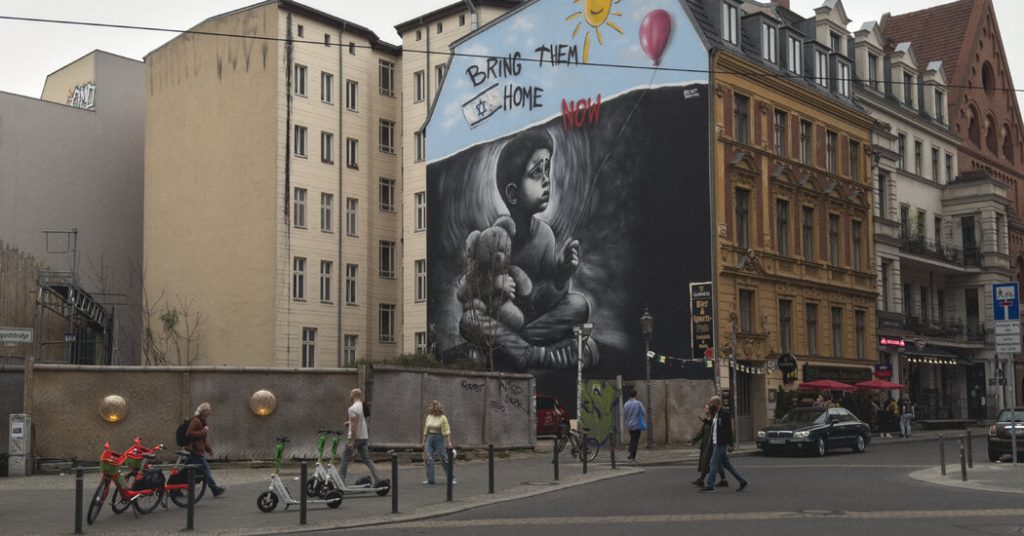The arts scene in Germany, particularly in Berlin, has been significantly impacted by the conflict in Israel and Gaza. Artists and cultural institutions have faced cancellations, lost funding, and accusations of antisemitism due to their statements and actions surrounding the conflict. This has created a climate of fear and recrimination, threatening Berlin’s status as an international cultural capital. The country’s history, especially its responsibility for the Holocaust, plays a significant role in how Germany supports Israel and restricts criticisms of the country. Artists who speak out about the conflict risk facing serious consequences, leading some to question the freedom of expression in Germany’s cultural sector.
The recent tensions in Germany’s cultural scene have raised concerns about the impact on artistic freedom and diversity in the country. Many artists, including foreigners who settled in Berlin for its artistic freedom, are now unsure about the future of the city as an artistic capital. The cancellations of exhibitions, plays, and performances, as well as the imposition of restrictions on speech supporting Palestinians, have led to a sense of new limitations and anxieties among artists and cultural institutions. This has made it challenging for artists to work internationally, attract top talent, and engage diverse audiences, potentially harming Berlin’s reputation as a cultural hub.
Accusations of antisemitism have become more widespread in Germany, with some being merited but many others being dubious. The restrictions on government funding for organizations or individuals who support the boycott of Israel have led some cultural institutions to rescind invitations to critics of Israeli policy, further stifling artistic expression. The influence of social media on cultural production has also increased, with statements, posts, likes, and signatures carrying more weight than artistic output. This has created a divisive atmosphere in the cultural sector, with artists facing backlash for their political views.
The current situation in Berlin and Germany as a whole reflects a broader shift in European politics, including the rise of far-right movements and concerns about historical responsibility. Antisemitic rhetoric and violence are on the rise in Germany, further complicating discussions around Israel and Palestine. The concept of Staatsräson, which defines Israel’s security as Germany’s national interest, has fueled debates about artistic freedom and the government’s role in cultural expression. The tensions between defending Israel and promoting artistic freedom have raised questions about the future of Berlin as an artistic capital.
Berlin’s history as a city of artistic freedom and cultural diversity is at risk due to the recent events surrounding the conflict in Israel and Gaza. The crackdown on cultural expression, accusations of antisemitism, and government interference in the arts have threatened the creative environment that has defined the city for decades. Artists, cultural institutions, and the government are grappling with how to balance the principles of free expression with national interests and historical responsibility. Protecting the freedom of the arts in Berlin is crucial not just for the city’s cultural scene but also for combating bigotry and upholding democratic values.
Ultimately, the ongoing cultural tensions in Berlin highlight the complex interplay between artistic freedom, political interests, and historical responsibility. The conflicts surrounding statements on Israel and Palestine have exposed deep divisions within Germany’s cultural sector, raising concerns about the future of artistic expression and diversity in the country. As the city grapples with these challenges, it is essential to safeguard the freedom of the arts and preserve Berlin’s reputation as a vibrant and welcoming cultural capital for artists from around the world.


